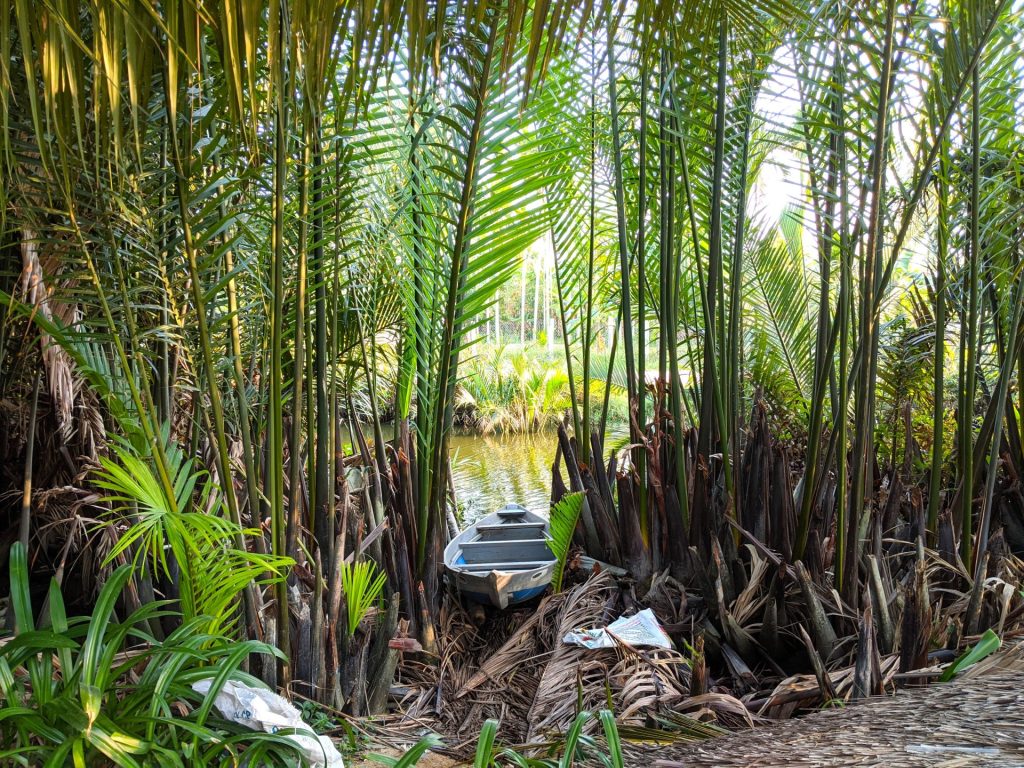
Katie and I recently hit our 5 year nomadic retirement anniversary. In the last half decade, we have traveled to 4 continents, visited 19 foreign countries, and lived in 39 different cities. During this time we experienced multiple typhoons and earthquakes, a major wildfire, and an ice skating mishap that resulted in a broken wrist. We’ve shopped at dozens of local markets, enjoyed numerous museums, and taken countless pictures of street art. And after paying for all of these adventures, our portfolio is larger than when we started, despite us not earning a single dime.
After one year of retirement, I wrote an expectations vs reality post. No matter how much planning went into this, and there was a lot, it was impossible to foresee everything that would happen following such a major life change. Many of the issues were known, like having an abundance of free time, but how we would react to them was a wildcard. While most of the major things were about as we expected, there were still a few surprises. The biggest one being a massive global pandemic.
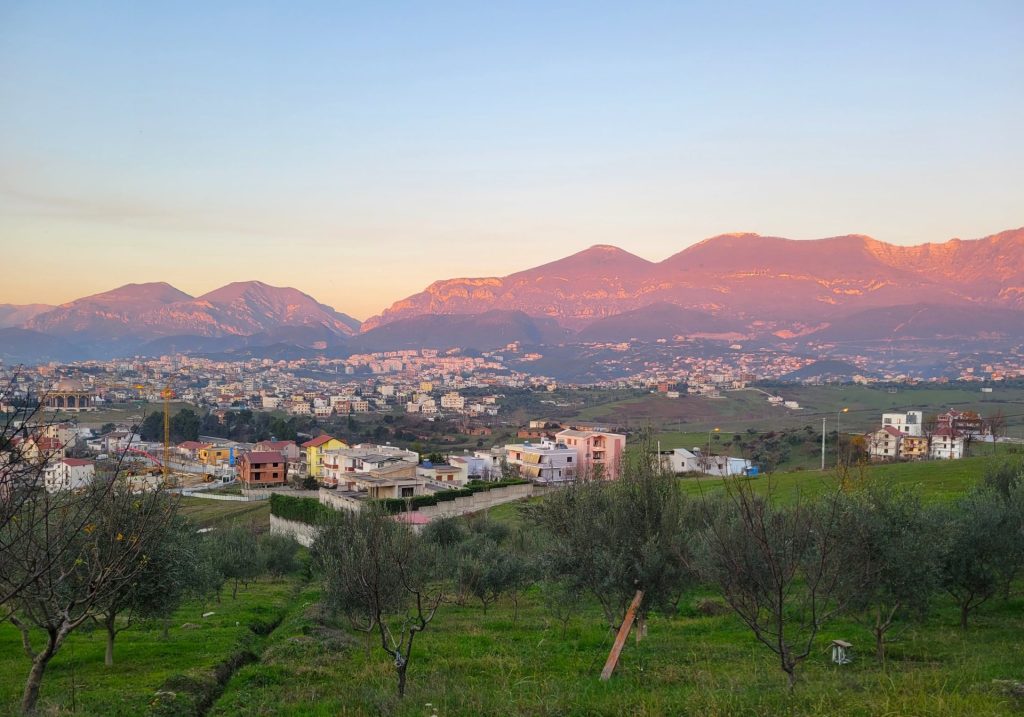
The Impact Of COVID
It was less than a year into our retirement when COVID disrupted everything and our new exciting travel lifestyle came to a screeching halt. We were in Danang at the time and Vietnam decided to close their borders in an effort to squash the spread of this infectious coronavirus. We were faced with the choice of staying there for an indefinite amount of time or fleeing back home in the middle of a pandemic with no US health insurance. Our decision to stay turned out to be a good one, at least as far as health goes. Despite their close proximity to the virus epicenter, Vietnam ended up handling the pandemic better than just about every other country in the world.
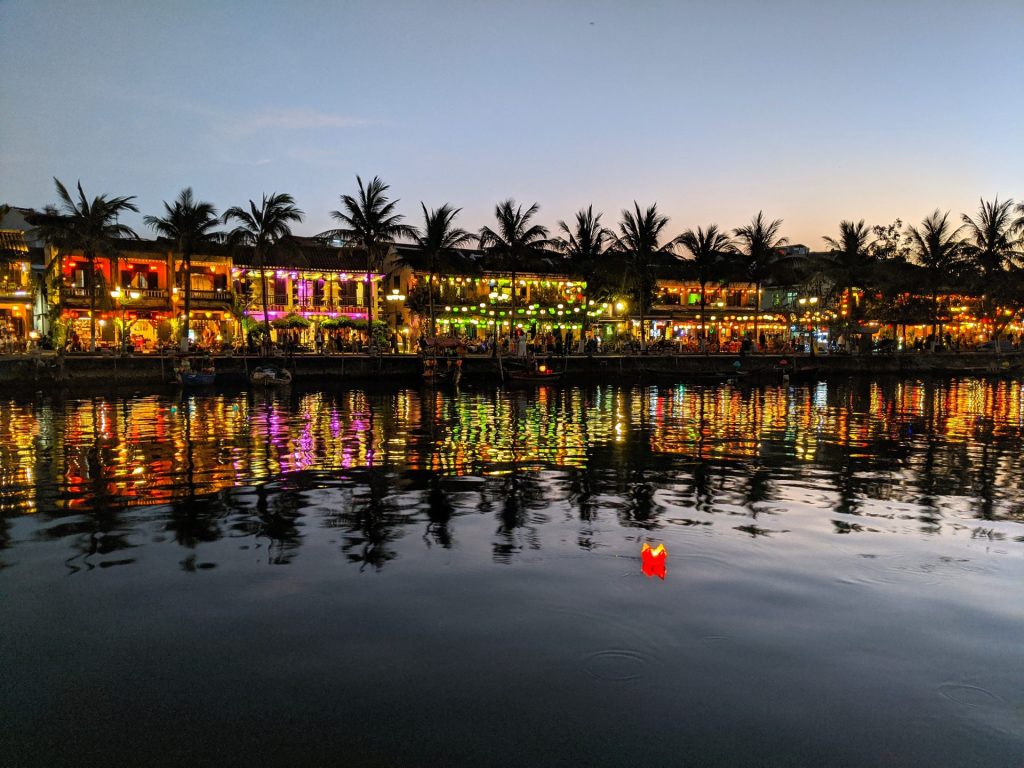
But that indefinite amount of time turned out to be a lot longer than we ever thought. Initially we hoped maybe it would take a few months, never guessing how widespread and disruptive COVID would become. Overall we ended up living in Danang for 470 days. Even after 5 years, this lengthy stay still amounts to 25% of our entire retirement.
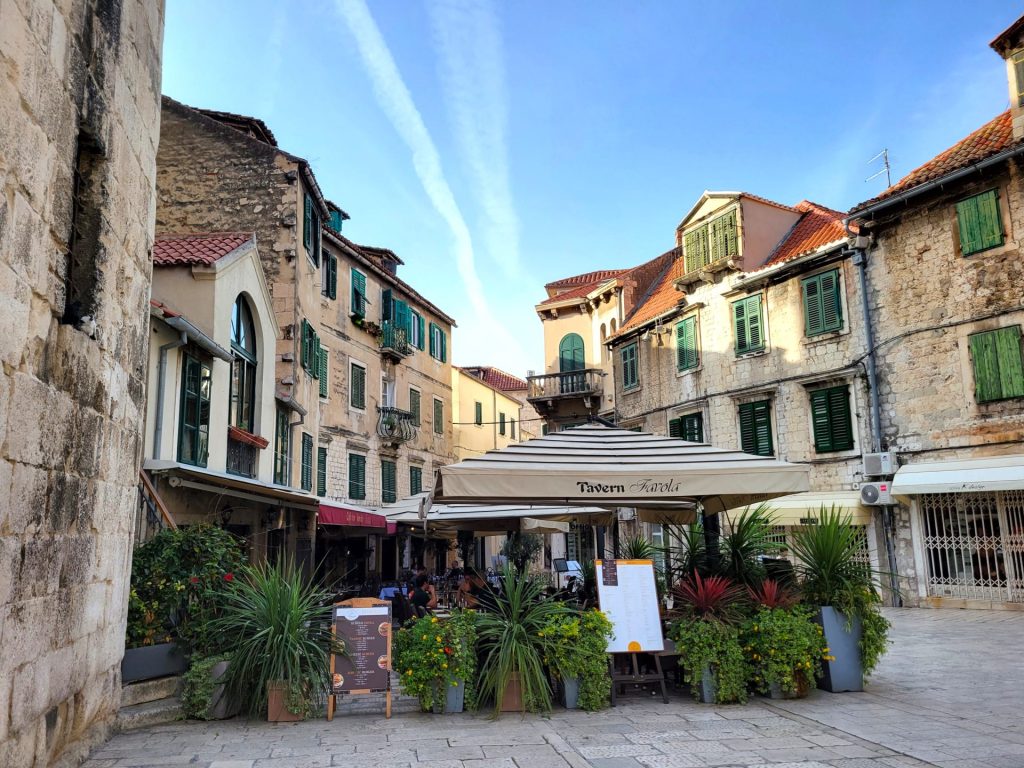
During our time there we went through long periods where daily life existed in a COVID-free bubble. But when it popped, we endured multiple lockdowns, had our blood drawn by the government, and were even barred from going to the beach. It was tough at times to not go stir crazy, as I’m sure many people can relate to. But we did stay physically healthy, and as far as I know, neither of us have contracted COVID to this day.
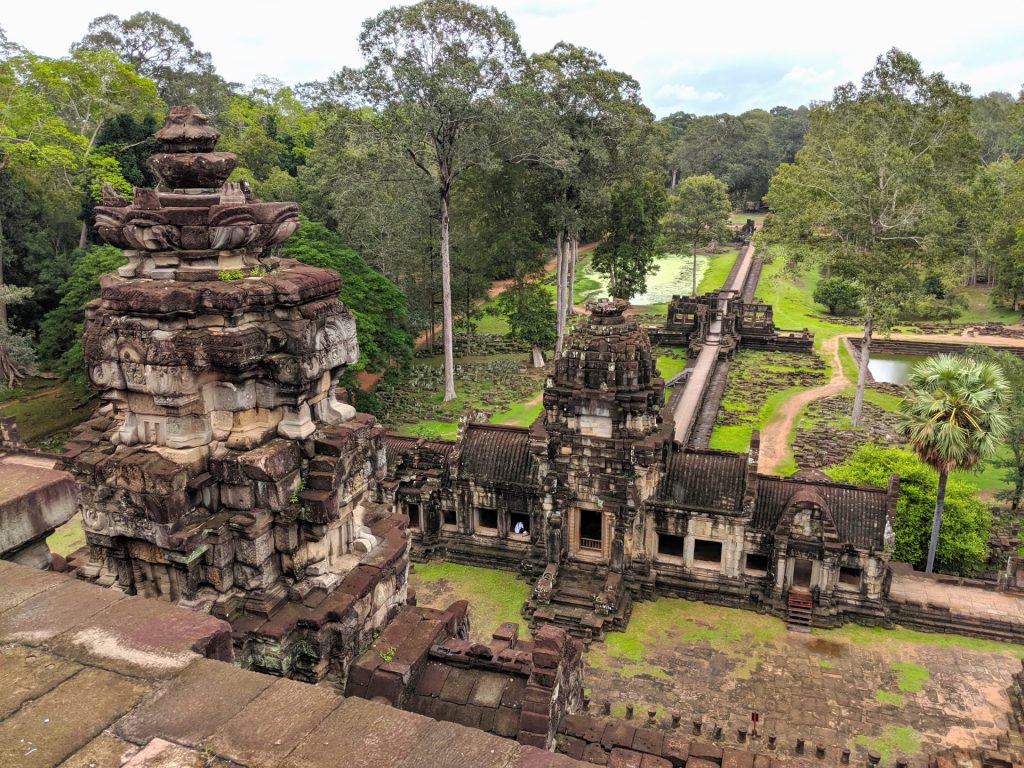
Travel Style Shifts
When we first started, we moved locations every week or two. After a few months, we decided to try moving slower, so we lengthened our average stay to four weeks. That took a bit of adjustment, but it seemed to fit us pretty well. Of course the pandemic turned everything upside down. We stayed a few months in Budapest when we were finally able to travel again in 2022, but after that we went right back to 4 weeks per stop. Then the thought occurred to us that after being stuck for so long in Danang, we might actually appreciate moving faster again.
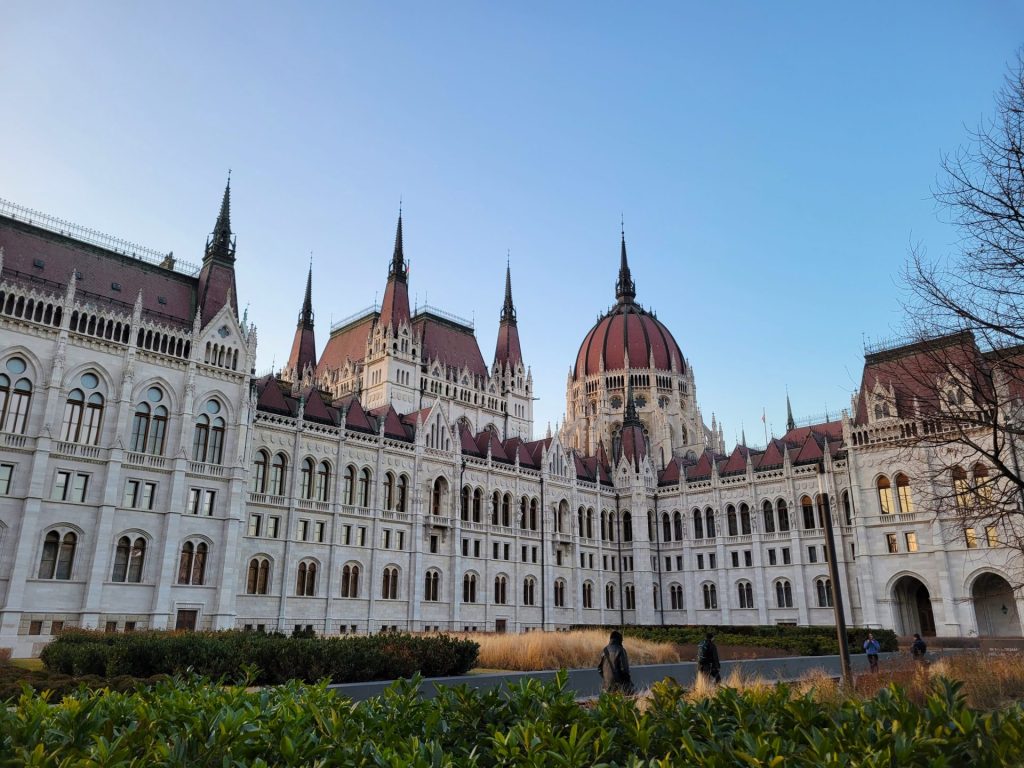
So we tried an experiment with a series of short stays in the Balkans when we went to Pula, Zadar, Mostar, and Budva. Those towns are smaller and seemed like good places for a travel pace test, but it only served to confirm that the slower pace is better for us. 4 weeks is definitely our minimum now. In large cities where we anticipate lots to do, like Mexico City, we consider staying even longer. The truth is that we don’t really like packing and moving all that much. That may seem like a strange thing for a couple of nomads, but it’s true. It’s always fun to be in a new city, but it’s rarely fun to get there. As they say, traveling is the worst part of travel.
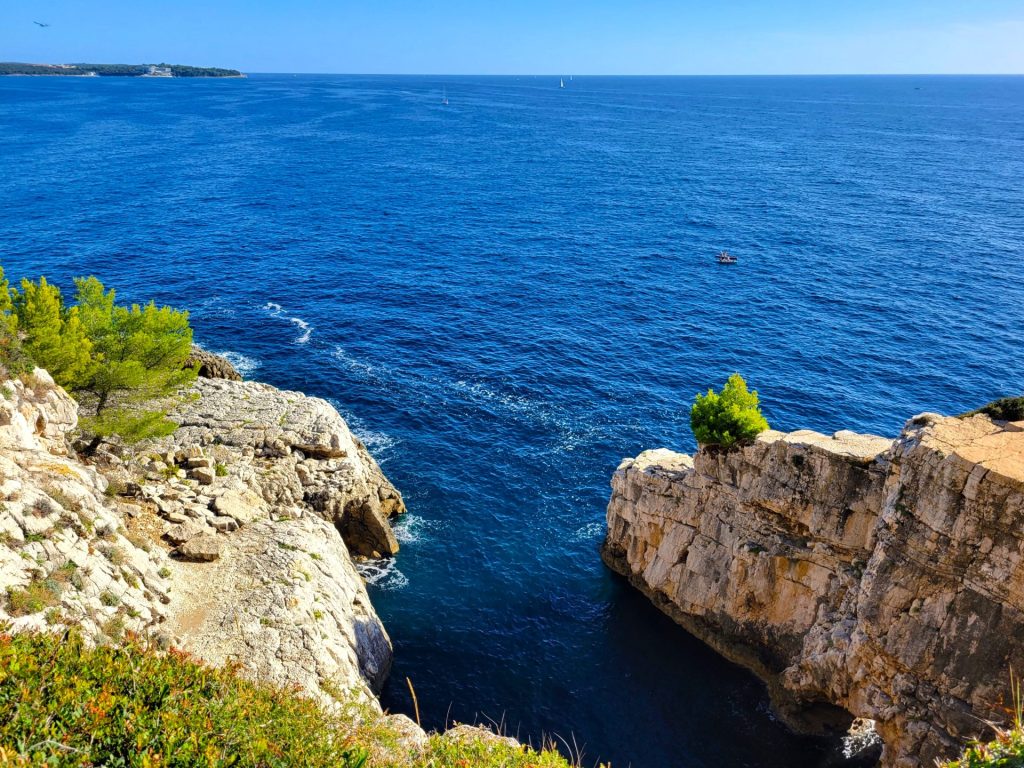
These longer stays place more emphasis on the importance of selecting the right apartment. And whether it’s age or experience, we are also getting pickier over time. When I look back at some of the places we stayed during our first year, like Penang, I can say with certainty that there’s zero chance that we’d book that apartment now. And we even liked it at the time! Our mantra used to be that we’re adaptable and can make do with just about anything. While that is still true in some respects, we are becoming much more discerning about the apartments we rent.

I’ve come to the realization that our apartment choice has an outsized effect on our enjoyment in any given place. At this point, I’d much rather stay in a great apartment in a mediocre city than a mediocre apartment in a great city. Even the best location can end up disappointing if we don’t like where we’re staying. At the end of the day, despite being nomadic travelers, we still spend most of our time at “home”.
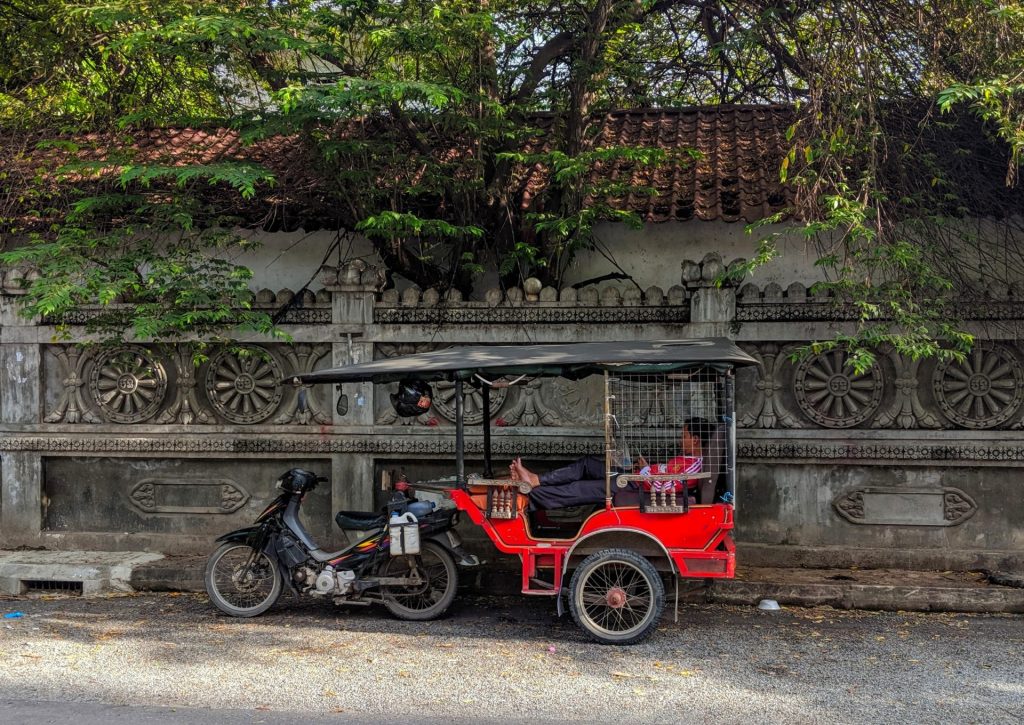
Some of this trend of selecting nicer accommodations is due to the fact that our early retirement has been financially successful so far (more on that below). There’s less pressure to keep our spending low when our portfolio has grown. But also it’s just cumulative experience. The longer we travel, the more importance we’ve placed on picking apartments that are larger and more comfortable. And I think we suffer more than we used to when we choose poorly.
Location Preferences
Aside from selecting a good apartment, we’ve also adjusted our climate preferences. Even with an ocean breeze, neither of us really enjoy hot weather anymore. We aren’t the type of nomads to chase perpetual summer. I’d much rather have to wrangle an extra suitcase with our winter coats than sit in a puddle of my own sweat. So we now do our best to avoid travel to places during seasons where temperatures might approach 100F (37C). And after our extended time in Danang, I’ll be perfectly happy if we never visit another beach again.
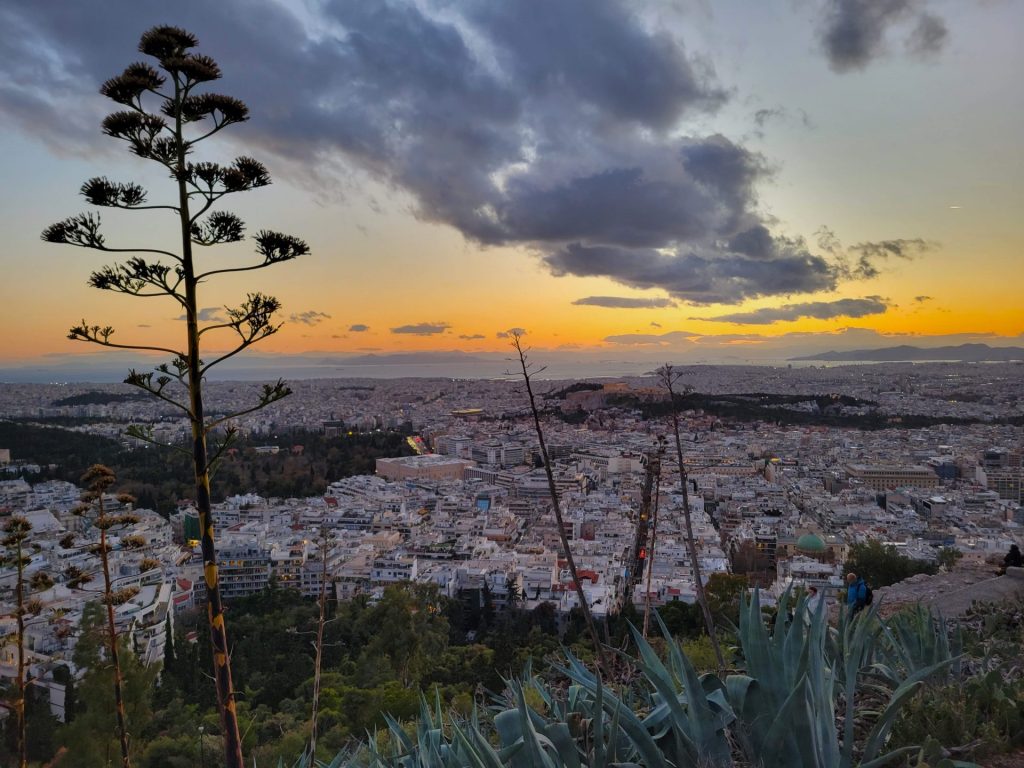
Air quality is also important to our choice. When we first started our travels, I didn’t even think to check. But after our time spent in Southeast Asia, I now know that AQI measures above 100 definitely have a negative effect on my quality of life. My sinuses and throat get irritated and I generally just don’t feel 100%. We still risk it sometimes, like our visit to Lima, but we try our best to pick places with less smog now. That’s probably good for our long term health too.
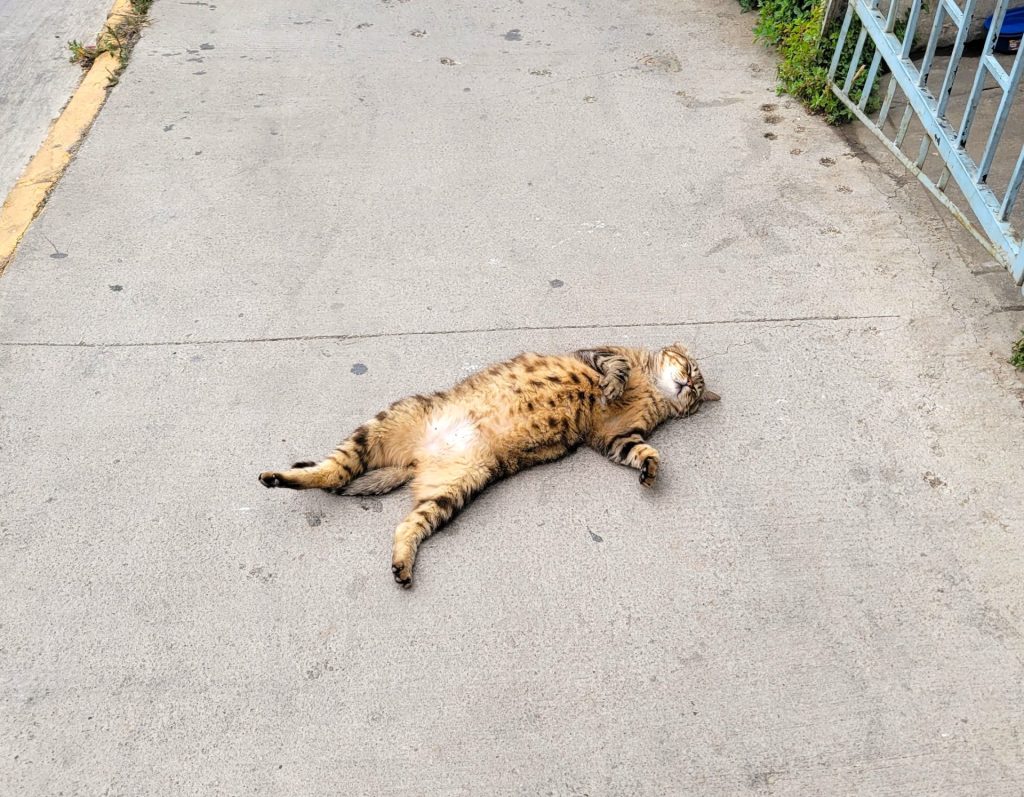
Minimal Taxes
We’ve basically paid $0 in taxes in the last 5 years, and I don’t see that streak ending anytime soon. We make yearly conversions from our pre-tax traditional IRA to a post-tax Roth IRA in the amount of the standard deduction ($29,200 in 2024). This conversion is taxed at regular income rates, but since it matches the standard deduction amount, $0 is due. Eventually we’ll withdraw that money tax free as well, since Roth withdrawals are not taxed. In fact, one of the other main benefits of this conversion is that the converted amount is fully accessible without any early withdrawal penalties 5 years after the conversion. As such, it’s not only a way to move pre-tax money to post-tax money at a 0% tax rate, it also grants penalty-free early access. That’s pretty hard to beat.
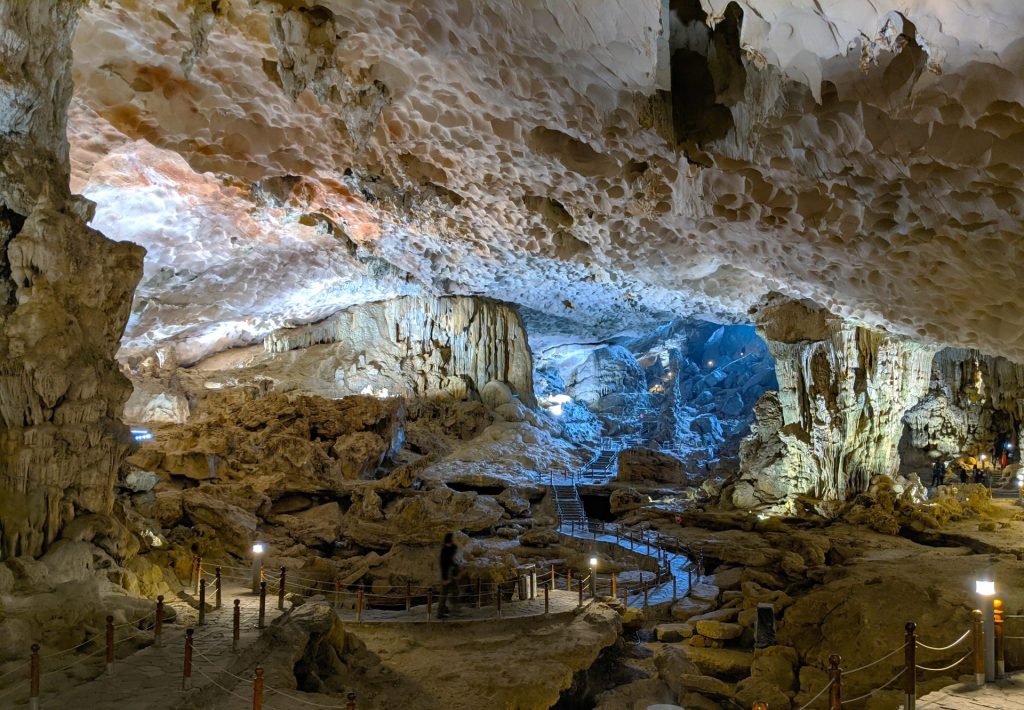
In the meantime, we pay our living expenses from our taxable brokerage account. This also costs us nothing in taxes because there is a massive 0% tax bracket for long term capital gains and qualified dividends. In 2024, we’d have to have income over $94,000 to qualify for a rate greater than 0% on capital gains, which at our spending levels, we’ll never even come close. When I don’t have to control my paper income (more below), I can even tax gain harvest by selling more than I need and “paying” taxes on that sale in the 0% bracket. Then I simply immediately re-buy the same investments since wash sale rules don’t apply to gains. This raises my cost basis in case tax laws change in the future or I ever need to raise a large amount of money for a major purchase. And as South Dakota residents, we don’t have any state income taxes to worry about either.

Free US Health Insurance
Even better than paying nothing in taxes is getting fully subsidized US health insurance thanks to the ACA. Since we only visit the US periodically, we don’t need to carry a policy every year. This allows me to distribute our income unevenly to our advantage. In years we have no ACA policy, I can build up our cash balance to spend from during the years that we need one. The extra cash allows us to keep our income artificially low during the years when we’re planning to visit the US. This low income makes us eligible for generous ACA subsidies. By picking less expensive plans with higher deductibles, the subsidies have been enough to cover our entire premium costs. So we’ve actually paid $0 for our US health insurance policies that we held in 2021 and 2023. When we return for a visit to the US in 2025, I expect it’ll be similar.

For the record, I don’t feel the least bit bad about taking advantage of the system in this manner. In my experience, everyone does their best to minimize their tax bills and maximize their subsidies within the confines of the law. Especially people taking advantage of a lot larger benefits than this. Even though we would normally just need coverage for a couple of months, these ACA policies are only available on a yearly basis. They also offer zero coverage outside of the US where we spend most of our time. As such, without min-maxing our income in this way, we’d be stuck paying a monthly premium for a policy that offers us no benefit most of the year. And since it’s insane to be in the US without health insurance, we can either opt for an expensive and shitty non-compliant policy, or let the government subsidize our much better one. The latter seems like a superior option. Maybe someday the US will adopt rational health care policies like the rest of the developed world and save all of us some money. Then we won’t have to worry about this.
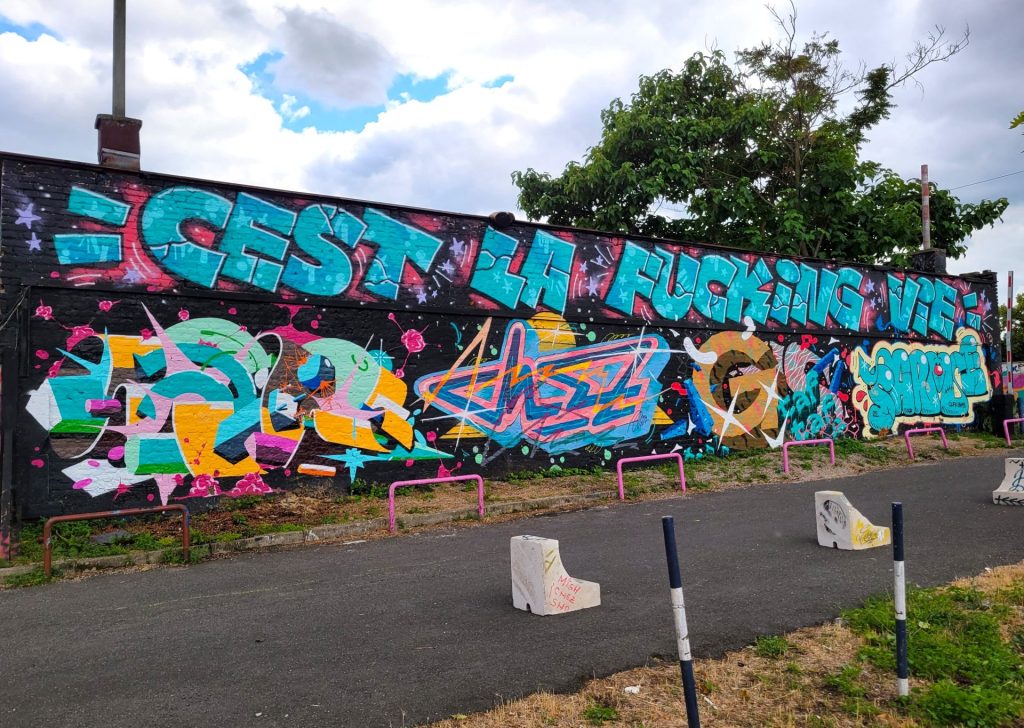
International Health Insurance And Health Care
While we only carry a US policy every other year, we buy an international health insurance policy anytime we are outside of the US. When we first set off, I wrote a post about my search for an insurance policy to cover us globally. My reasons behind choosing a policy haven’t changed since then, and I still look for policies that offer high deductibles and low premiums. We can afford to see a doctor for routine stuff. Nowhere else in the world is like the US, where even the smallest issue requires insurance. What we are insuring against is a massive emergency with extended hospital stays. None of these international policies cover pre-existing conditions anyway, so opting for catastrophic coverage policies makes the most sense.
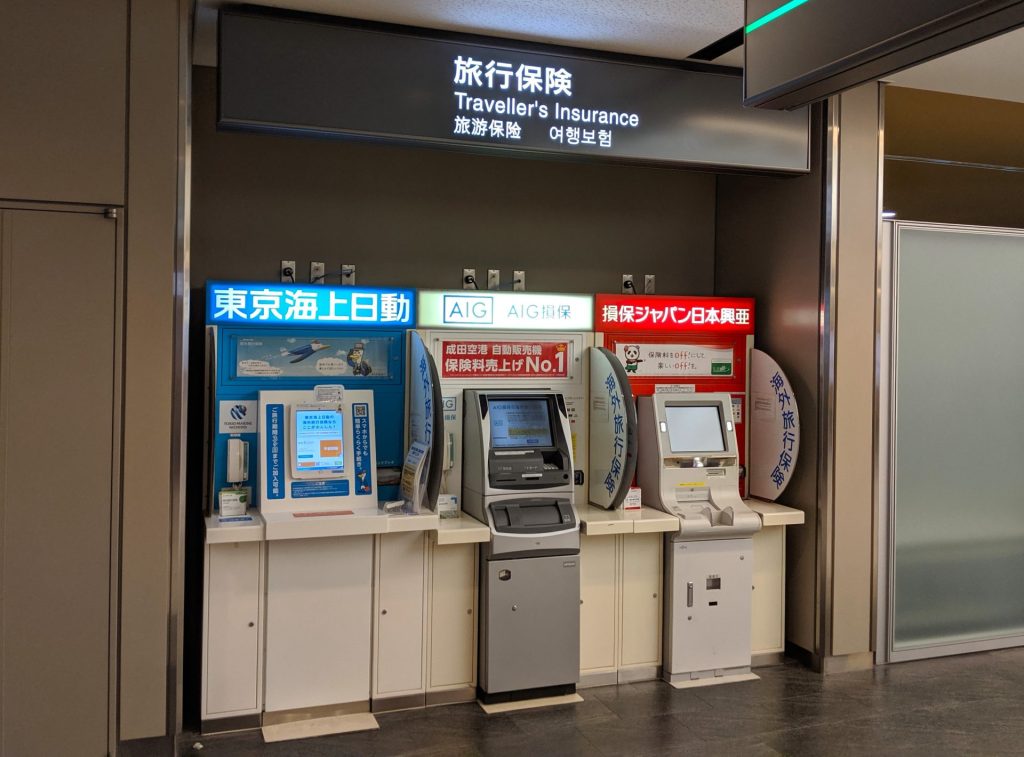
At that time 5 years ago, I chose a policy through Tokio Marine, but we didn’t continue with them because of their lack of coverage for COVID related illnesses. Since then, we have cycled through IMG Global, GeoBlue, and Cigna for our coverage abroad. So is one international insurer better than another? I’m not really sure.
We have been mostly healthy during our retirement so far, with our only real mishap coming when Katie broke her wrist while ice skating in Budapest. To treat that, we chose a private clinic in the city and the care we received was excellent. She saw the English-speaking doctor 5 times, had 3 x-rays, and was fitted with 2 different casts. The total cost for the entire accident was $831, which seemed unbelievably cheap. That’s like the price of 2 aspirin in a US hospital.
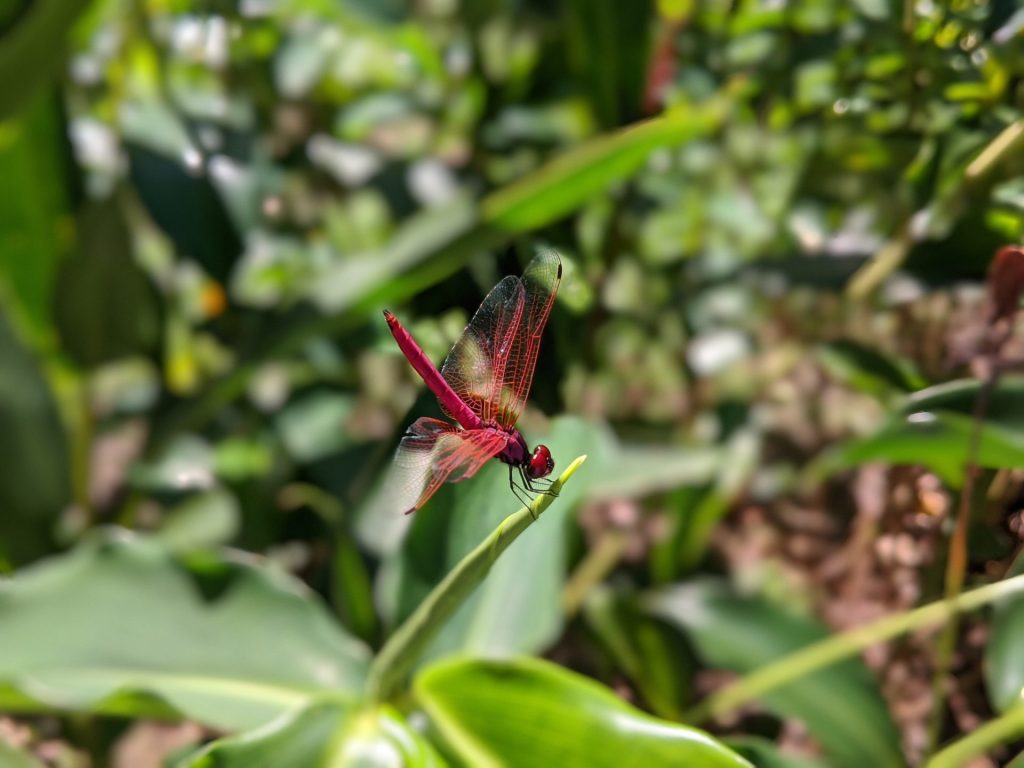
I filed the reimbursement claim with IMG Global, our insurer at the time. The amount was well under our $5000 deductible, but it was early in our policy period so it might have mattered if we had another claim later. My experience with the claims process at IMG was not great.

First, I had to fill out 6 pages of forms for each of the 5 appointments. Even though I had already supplied the same information after the first visit to the doctor, they required it to be included with every subsequent submission. It was kind of ridiculous. Nevertheless, I dutifully sifted through the enormous amounts of red tape and submitted all of the paperwork they requested. And then I waited. And waited some more. Eventually our policy expired. The claim never advanced from “pending” status, but since we had no other claims that year and the amount was below our deductible, I just let them proceed at their pace and never followed up.
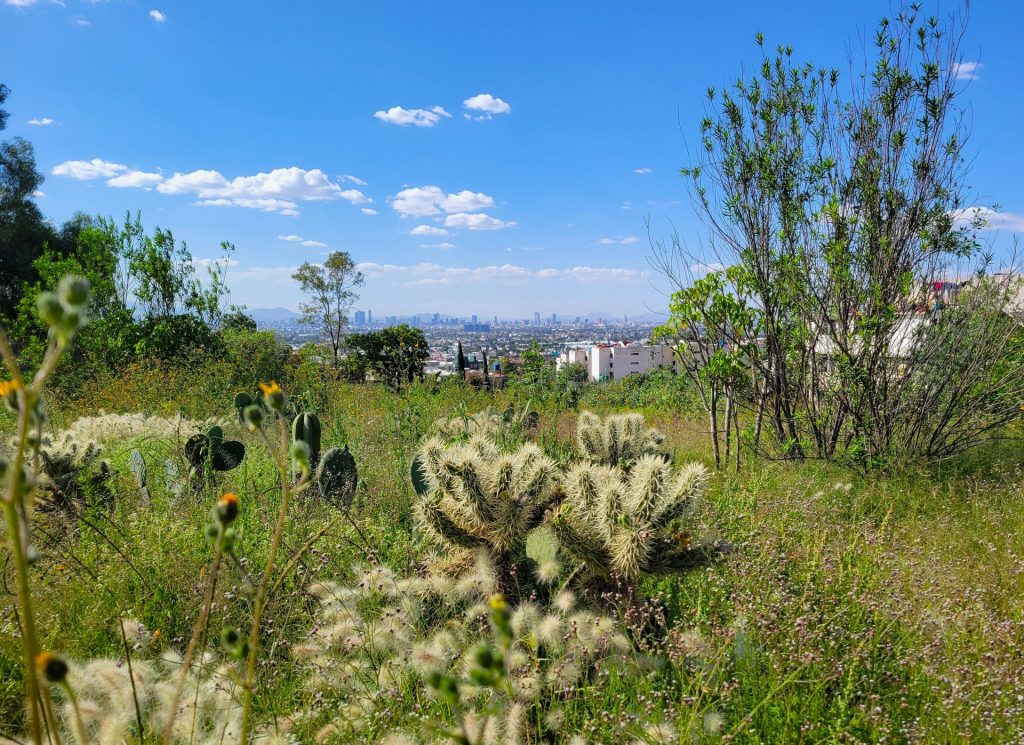
It’s possible that they were still waiting for even more information from me, but I didn’t receive any notification of that. I recently checked to see if they ever actually finished the processing of this claim. What I found was that IMG now has no record of the claim on their website, despite still showing the expired policy. So at some point, the claim went from pending to non-existent.
This entire process further cemented my thinking that opting for the highest deductible possible is the best choice. It results in the smallest premiums and has the lowest risk of needing to deal with any of these companies. While my only claim experience was with IMG, I have little doubt that they are not the only insurer who tries to bury you in bureaucracy in the hopes of not having to pay. And if we ever need to actually get reimbursed, I can be more of a squeaky wheel. But I’d rather avoid that when possible.
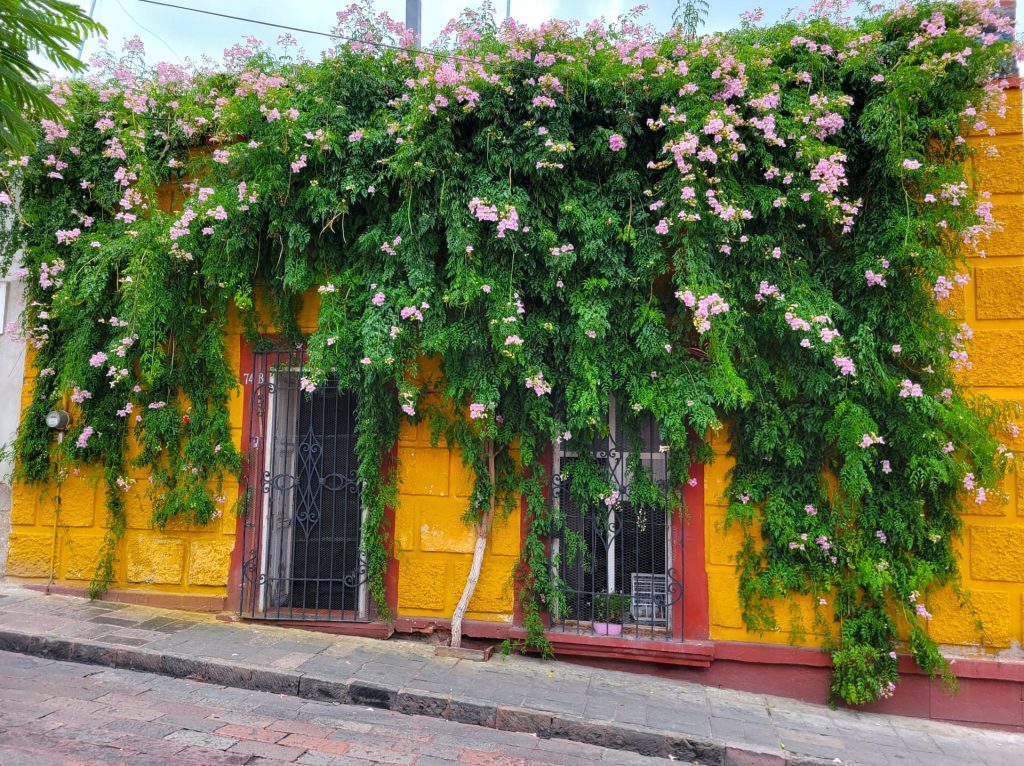
Continuity of Care
While we haven’t been on the receiving end of much health care, I can tell that continuity of care is a major drawback to our nomadic lifestyle. Even with routine care, we’re basically starting from scratch every time. Researching and finding a competent dentist to see twice a year is a major pain in the ass. We have not been able to consistently repeat our success in Malaysia. Our current strategy is picking the most expensive one in the area, figuring that they are less likely to try to upsell us on unneeded procedures if we’ve already paid a higher than average rate. That doesn’t always work though, and it’s still somewhat of a crapshoot. On the other hand, we’ve had two good experiences versus zero bad ones at the dermatologist. So maybe the problem is just with dentists?

If one of us were to actually require serious ongoing health treatment, we’d have to consider settling down somewhere. Or at the very least, plan to return to the same city often. I don’t think it’d be possible to continue switching cities and starting over forever in that case. But that’s a potential problem for future me to solve. For now, the lack of continuity of care is an annoyance but isn’t enough of a downside to make any lifestyle changes.
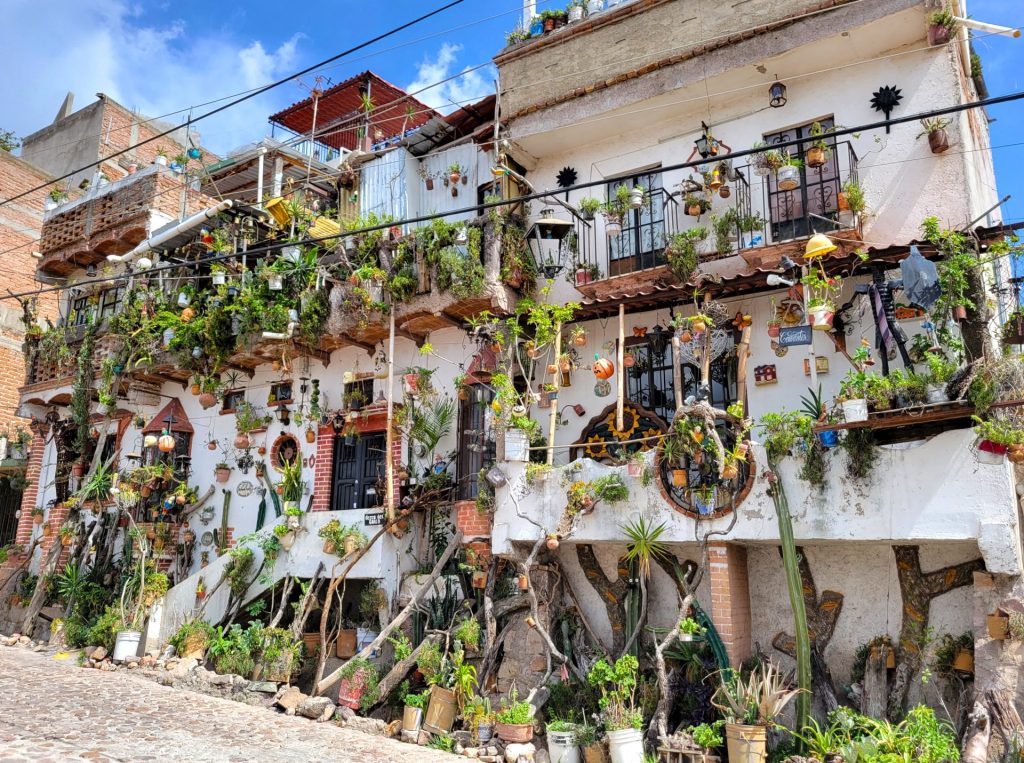
Investment Portfolio Trajectory
I’ve written before about how my goal is to frontload lower spending years at the beginning of our multi-decade retirement. The idea is to give us better odds of portfolio growth, since spending less now leaves more money to compound for later. So far that’s working out. These ~5 years (6/27/2019 – 8/11/2024) have cost us $140,230, or about $28,050 per year on average. Some of that spending is artificially low due to COVID travel restrictions and our extended time in Vietnam, but we play the hand we’re dealt.
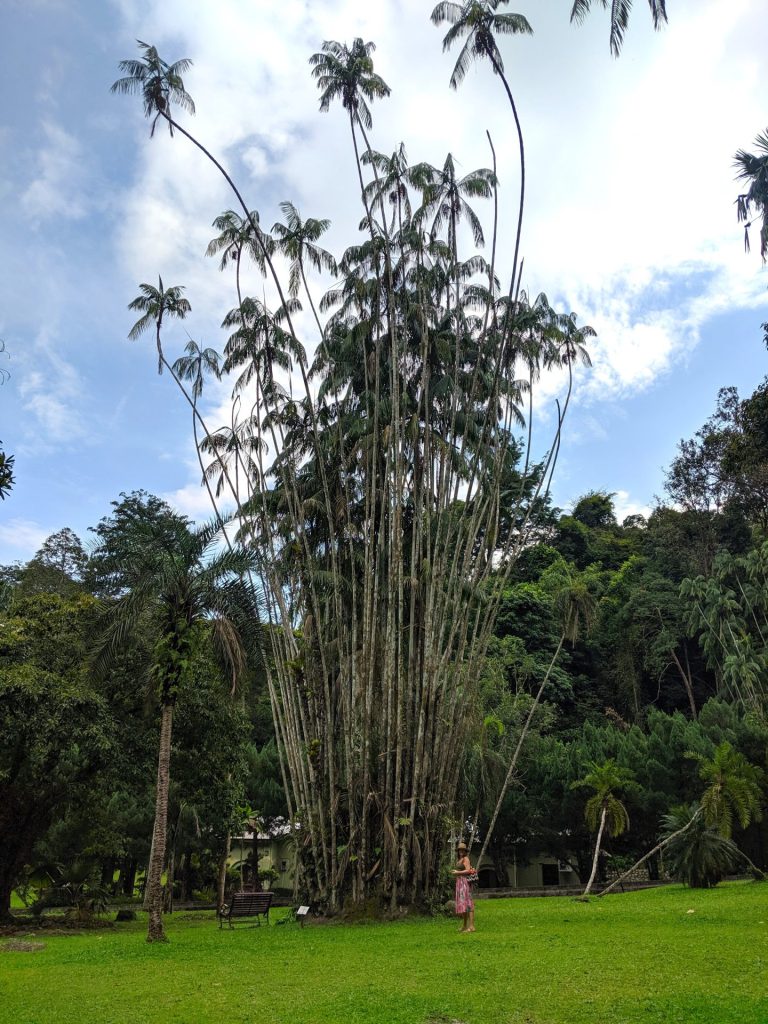
After paying for all of our living expenses, knuckling down through the COVID flash crash in 2020, and suffering through the third worst year in history for a balanced 60/40 portfolio in 2022, our portfolio has grown by about 20% after inflation adjustments. That’s pretty good! According to retirement planning guru Michael Kitces, the highest correlation between real portfolio balance and retirement success occurs at the 10 year mark, so while it’s a little too early to pop the champagne, the preliminary results are encouraging. Our expanding balance also gives us more flexibility in choosing our locations for the future.
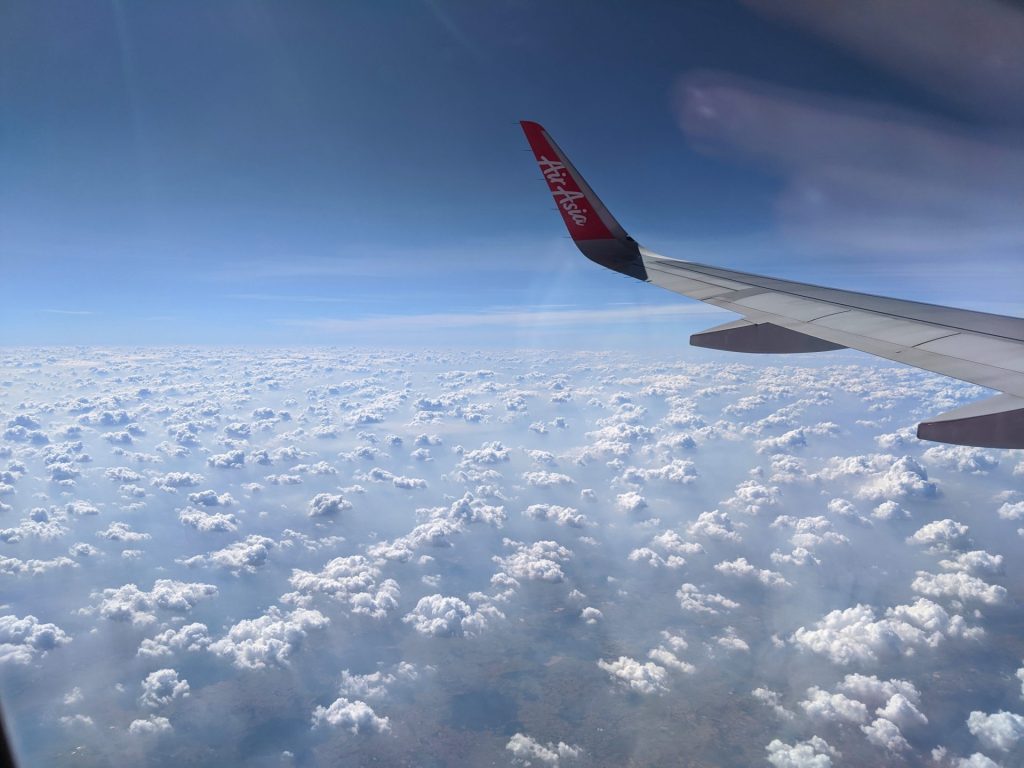
What’s Next?
Next we have our eyes set on France. We were approved for a year-long French visa, the VLS-T (visa long séjour temporaire). The visa is a simplified version of their residency visa, the VLS-TS, which means that we’re absolved from registering or paying taxes. The process was mostly straightforward, at least as far as getting a visa for the country that’s the origin of the term bureaucracy.
We just needed to fill out an application, prove that we had enough money to cover our stay, provide a copy of a year-long insurance policy, visit a consulate in the US, and pay some fees. Two weeks later we got our passports back in the mail with a gorgeous new visa. Now we just get to show up and live in France for a year. We can even travel to other European countries if we want, subject to the normal 90/180 Schengen rules. Although at this point, I don’t think we have plans to do so. Being able to stay in France without doing the Schengen Shuffle for the next 12 months is very exciting. And avoiding air travel all year will be the cherry on top.
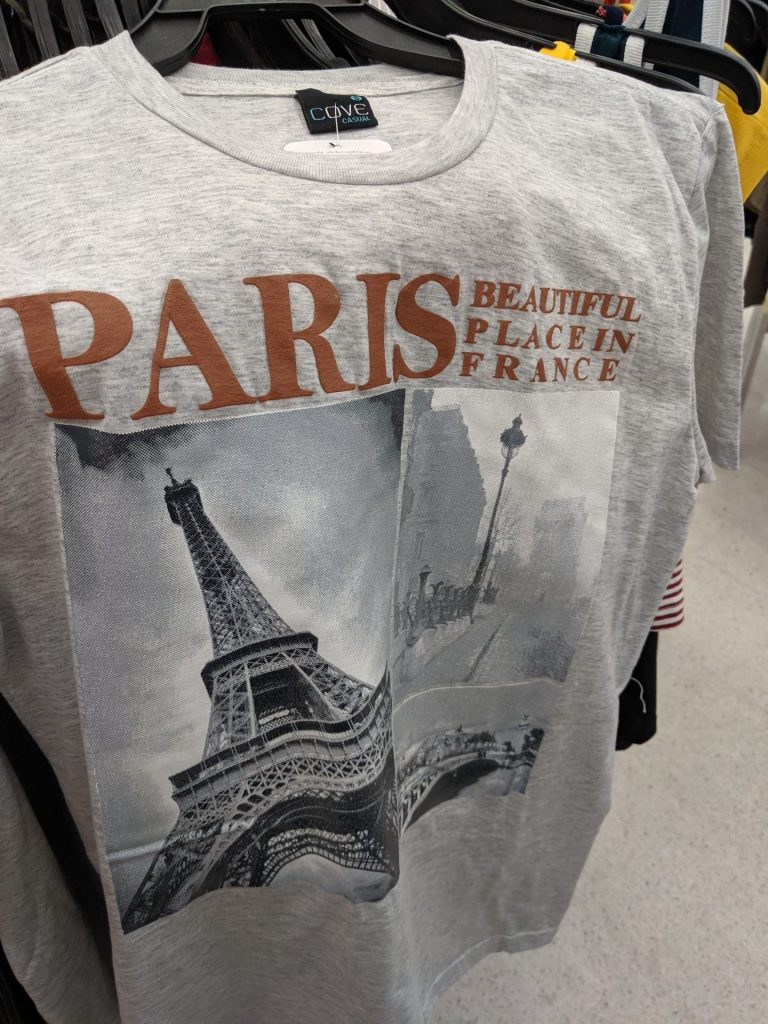
Aside from health insurance, the most common question I receive is how long are we going to keep up this nomadic lifestyle. The honest answer is I don’t know. There may be a 10 year post or there may not be. When we have a good apartment that we like, it seems like we could keep going forever. When we don’t, it feels like we’re nearing the end. But we have no definitive plans to stop. We don’t even know where we’re going to stay in France in a few months, let alone after. So much planning went into our lifestyle to begin with, it’s somewhat freeing to have a wide open future. For now we’re going to keep moving around slowly and I’ll occasionally write about it.
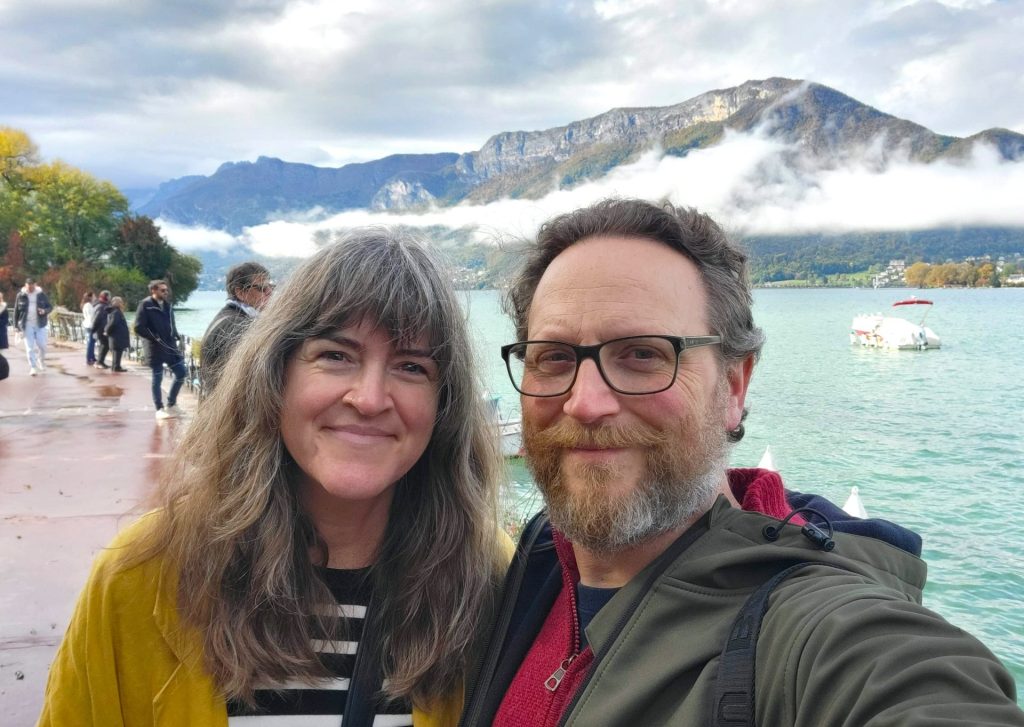
This is such a timely article as my husband and I are less than two weeks away from launching our nomadic travels. Thank you for being so conprehensive and touching on many of the factors I think about.
Two weeks?! That’s very exciting. I remember both of us barely sleeping at all those last few weeks, so I hope you do better than us in that regard. Although I’m not sure I have any tips for that other than just gut it out and get it over with.
Congratulations 🎉
Hearty congratulations on 5 years as nomads, and much thanks for all of your posts! I enjoy reading them and learning from them, as they have helped shape my trajectory in early retirement. Thank you and best wishes for a fantastic year in France!
Thanks Justin! That’s very kind of you to say.
What a fantastic post! As fellow nomads (in only our second year) we thank you so much for the hard won lessons that you share. Jen and I are here in Puerto Vallarta also learning that temperature matters and apartments have a big impact on quality of life. I hope we can cross paths sometime in the future. Best, Daniel
Thanks Daniel! It does seem like most nomads are in search of perpetual summer, but that’s definitely not for us, at least not anymore. But if you’re going to be hot, at least you have tacos and paletas.
Thanks so much for all your posts. I really do love your breakdowns of everything. My partner and I are five years off from starting our journey and I always look forward to reading your posts to keep me inspired to keep pushing forward with our plan.
Hi Mike,
I’m happy to help provide that inspiration. Much better than being a cautionary tale. 🙂
Of course, Paris. Bordeaux is also a lovely smaller city that we enjoyed very much. After growing up paying zero attention to WWII history, we found Normandy/Arromanches area fascinating. And we very recently visited Annecy near the Swiss border and Geneva. Beautiful little city with a large lake and multiple canals. Also, I spent 70 days with Duolingo and ended up with enough French to feel much more comfortable, although certainly not fluent. Just understanding more signs and menus, feeling more comfortable with the pronunciation, and having small interactions in French made a huge difference this visit.
Thanks for the tips Lynn. I agree that Annecy is a beautiful spot. In fact, the last picture on the post above is a selfie taken at Lake Annecy just a few days ago.
Hi Eric, you’ve got readers from India 🙂
Have enjoyed your writing for a while now. I’ve made my FI money and while I crave to kick off a nomadic lifestyle similar to yours, we’ve got very young kids to raise, so we haven’t gotten to that stage yet where we can take off. While we get through the child-raising years, my wife and I try to take advantage of our FI stash in any way we can. I enjoyed a 3 year mini-retirement and got back to working recently. My wife will continue to focus on being a parent and has no plans to work anytime soon.
I hope we can emulate your journey sometime in the not too far future. We’re in our late thirties and hope we have the time.
Thanks for sharing your experiences!
Hi Nitin,
I had no idea that this little blog had such a global presence! It’s great that you have put yourselves in the position to be able to have flexibility for some extended time off. I’m sure your kids will appreciate that. Thanks for reading and commenting.
Happy Anniversary! Much of this feels quite familiar. We have been roaming around in Asia for over two years now. We have identified four cities that we like to rotate among, staying in each place for 2-3 months and jumping to a new place for a month every once in a while. We have found this pace suits us well. Also, returning to familiar places reduces the amount of travel research and allows us to just “be” in a place and enjoy it more without constantly looking ahead. I think we are going to keep this up until the fall of 2025 until we return to the U.S. for a visit, then decide what’s next.
We have definitely developed a taste for more comfortable accommodations… the must have list has grown a bit, as has our willingness to pay more when necessary.
Your France situation sounds quite interesting. I hope that works out well for you.
I don’t know how long we will keep up this nomadic lifestyle, but there is no end in sight at this point.
Wishing you both a lot more wonderful experiences and safe travels.
Good to hear from you Skip. I think we’ve developed our own solution to combat constantly looking ahead. We just show up in our next city without having any idea what there is to do. But since we’re staying a while, we have time to figure it out once we get there and not before. We would’ve never done that 5 years ago, that’s for sure. Now we can just wing it.
Out of curiosity which ones are the places you keep returning to?
That was a great post. I’ve enjoyed following your travels and experiences and look forward to more. As a business traveler, I’ve been a lot of places but didn’t have time to really soak up the flavor of each place until we had the chance to live in England. It makes a real difference when you can slow down.
Thanks Ned. You’re definitely right about that. Being able to slow down makes all the difference.
Thank you for this post! Your travels have been inspiring. I hope to be like you when I grow up (err, retire in 4-5 years). I appreciate the financial breakdowns you provide and how candid you are with your experiences, the good and the not so good! Congrats on 5 years!
Thanks Melissa. I’ve found early retirement is the opposite of growing up, so hopefully that’ll agree with you too.
Thank you for a great five-year update ! As someone planning for early retirement to travel the world as you are, I’ve found the information you’ve shared on BN to be extremely helpful. I’m curious as to how you plan to minimize taxes while you reside in France for a year (which I believe will make you a tax resident of France that year). Perhaps this is something you plan to discuss over the course of your stay in France — if so, I look forward to reading and learning through your experience!
Hi AG,
Our visa is still a visitor visa, just a long term one, so we won’t be paying any French taxes. Since we don’t have a tax ID number or anyway to actually file, we’ll have to just skip that part. Instead, we’ll support the economy by buying extra baguettes and kilos of soft cheeses.
We have a lot of similarities in how we’ve been traveling and managing all the details!
Congrats on 5 years. 😁
Thanks guys!
Congrats on the 5 year mark! We’re slowing our travels and planning to spend 6 months in Manchester, England next year.
FWIW, we’re 3 for 3 on claims with World Nomads travel insurance. 2 minor < $100 claims and 1 in the $600ish range from when my wife got COVID in Tokyo and I had to get a hotel while she was positive.
If you’re planning on doing a sojourn in Madrid while you’re in France, we have been very happy with our dentist there. We did a 23 hour layover en route to Gijón this year just to make sure we could do our checkups and cleanings in Madrid.
Does the 6 months in Manchester mean 2 different 3 month stays or are you getting a visa? I doubt we’ll make Madrid this time, but I would certainly like to go someday. I’ll make sure to time it with my dental needs and reach out then.
It will be really appreciated if you can share information about your dentist in Madrid!
You’re an inspiration man!
Also did you know there are a few unicorn ACA plans that have not only nationwide coverage but also Global coverage with In-network? It’s wild but true. Basically they are Blue Cross plans with GeoBlue included. PA has some and I’ve heard a few other stats as well. I pay $0 for global healthcare it’s wild. Network is limited but there are options in most major cities.
Thanks Jeff! I didn’t know that was a thing. I haven’t seen any policies like that in SD, but I’m happy to check again just in case.
Congrats on the five year mark..! Your posts are always interesting with soooooo much useful information..
..to include that we are also exploring that same French year long visa.. looking forward to hearing about your adventures with that…!
Curious – what insurance policy did you go with, anything specific for the French health care requirements..?
Thanks again and enjoy the adventures!
Funny enough, we’re back with IMG. I think I would’ve preferred Cigna, but their website didn’t like that I was applying for a new year-long policy that overlapped with my current coverage through them. And I waited until the last minute before our visa appointment, so I didn’t have time to fix it.
Best of luck with your application. It’s a pretty great visa.
Hello,
I found your article shared on reddit while trying to find a better health insurance… I am traveling longterm by bicycle and initially chose IMG. I submitted a small claim six months ago and have been badgering them every month since submitting the claim. Every time they say something vague and I submit more supporting information. The big issue being that they wanted proof that I had no other insurance. I finally learned that I needed to submit a letter from my previous insurer, but still never heard back. Today I called to escalate my claim (again) and then got mad and sent an email to cancel IMG (with a request for a full refund. Not that that will work.. ). But, unfortunately after doing more research… iMG still seems like a good top option :(. Ill look into Cigna.
Leaving bread crumbs incase anyone else finds random comments useful! Was great to read about your experience. Thank you!
Thanks for chiming in with your experience Carolyn. I think it’s pretty universal that insurance is frustrating.
Thank you Eric for all the great posts! Have been following this blog for a while now and look forward to each new installment. Very informative and engaging. Taking notes for when my time comes in a couple of years. Question for you – is there a blog or youtube channel you would recommend that focuses on retirement account withdrawal strategies and associated tax planning? Also, are the “free” financial advisors with Fidelity or Schwab useful in any way in planning early retirement?
Thanks again!
Hi Anton,
I think your questions are probably good for larger groups, such as Reddit FIRE subs like /r/leanFIRE, /r/financialindependence, or /r/FIRE. The old Bogleheads forum is still up and running and has a lot of knowledgeable posters as well. If you spend some time hanging around these places, reading and asking questions, you’ll likely come to the conclusion that you can handle most of your retirement planning yourself. If not, I’d recommend paying for an advisor instead of relying on a free one. No one works for free, so there must be some catch. If after using the early retirement forums above you’d still feel more comfortable paying for an advisor, the XY Planning Network is the first place I’d look. This was founded by Michael Kitces (who I linked a couple of times in the post above) and he’s been a friend and contributor to the early retirement community for decades. They even have a category of advisors that specialize in early retirement.
So awesomely inspiring, Eric and Katie! Enjoying the blog and seeing a slice of nomadic life, while rarely leaving Los Angeles!
Hi Laura! What a nice surprise! Glad we can share some inspiration.
Thank you for sharing your experiences! I stumbled upon your blog while browsing Reddit one day, and it’s been a game changer for me ever since. I’ve enjoyed every post I’ve read (though I haven’t made it through all of them yet) from start to finish, which is rare these days with my attention span shortened from all the constantly scrolling on my phone.
The photos are beautiful, and the blog is such an enjoyable read—you’re a wonderful writer. I especially appreciate the spreadsheet at the bottom of each post.
I have similar financial and travel goals, though I’ll likely be doing my early retirement and travels solo. My partner is more rooted and will take some time before feeling comfortable with FIRE. It may take me another year or two to join the two-comma club, and I’ll also be around 40 by then. Hopefully, I’ll have the courage to embark on a journey like yours and Katie’s when the time comes! Cheers!
Thanks Eileen. It’s nice to hear that you’re not only enjoying the blog, but finding it useful as well. Best of luck avoiding One More Year Syndrome. 😉
Congratulations to you & Katie. I so enjoy your posts. This last one certainly gave so much important information for those young like you & Katie. I have traveled to 5 of the 7 continents. I have Australia & Antarctica left. I experienced a stroke last November & get to use a hiking stick when outside my house. Keep on traveling and sharing. I am sure your parents are proud that you both can experience this lifestyle.
Thanks Anne. I hope you can make those last 2 continents. That would be quite an accomplishment. Good luck!
Thanks for the great article. I’m really hoping that you will share your experience as much as possible in France since its in my top 3 on paper.
You said a few things that confused me though – isnt the VLS-TS a renewable visa? Like dont people basically retire in France on that one? But then you said it allows you to avoid paying tax in France? It’s hard to imagine that you could stay forever while never having to file taxes. It would not be the end of the world to be on the hook for french tax though, if i understand your income and the tax treaty correctly then you will likely still owe around zero, even while doing Roth conversations.
Also, i thought you become eligible for France national healthcare after the first 3 months right? And i think most ACA plans are required to cover you globally for emergencies on trips under 3 months. I found this in the fine print in my plan documents. So maybe you will not need that global policy after all.
Hi Ben,
We received an abbreviated version of the VLS-TS, so it’s not renewable and it specifically says that we don’t have to register. I believe the registration part is where we’d get a Tax ID number and all that jazz. The full version would work like you’re describing. I’m not sure what the regular qualifications for the national healthcare system are, but proving insurance coverage was a big part of the visa application process, so we won’t get to experience that.
I read about this part of the application process but it’s a little fuzzy to me now… i still think you might qualify to get on the French system after 3 months… I seem to remember people signing up for a year of insurance but then cancelling it when they get on the French system for a partial refund. Well, either way, hopefully you won’t be using it.
Wouldn’t I need a France national ID number though? Like the kind I’d use to pay taxes? I don’t have one of those and I’m not sure how to sign up otherwise.
I thought South Dakota didn’t have any great ACA plans with comprehensive networks, how are you dealing with that when you do buy ACA the years that you do spend in the US?
Hi TJ,
We mainly use it as coverage for emergencies, because emergency coverage isn’t network dependent. If we have routine stuff we want to squeeze in, then we make the trip to Sioux Falls.
Hi, how are you buying your plane tickets when you need to show onward travel before your tourist visa runs out? Are you buying flexible tickets and then changing the dates?
Hi CS,
I can’t remember the last time that we needed to show proof of onward travel. It just doesn’t come up very often. But we usually have a travel plan that’s at least 3 months out, so we’d be able to show our actual travel bookings.
Hi there
Just discovered your blog, and some useful stuff in there.
We plan to embark on a similar journey in September 2026, with no end date planned…
One question is how far in advance do you plan the next destination? And how far out to you book flights?
Still getting our heads around the whole flexibility thing, with how much time in a place to book in advance when you don’t know if it’s going to be a goldmine or a dud …
Any advice?
Hi Gary,
How far we plan in advance varies based on demand. If we’re visiting Europe in the summer, then we sometimes book 6+ months ahead of time. If we’re visiting Phuket in the offseason, then a couple of weeks is enough. But I’d say in general, we have solid plans at least 3 months out and a rough sketch for the next 6-9 months. Ideally we don’t book flights at all and plan our next stop in a place accessible by train, bus, or boat. But if we have to fly, then I would normally book around the same time as choosing the destination.
Leaving the planning until the last minute and choosing destinations on a whim sounds romantic, but I think the reality is that all of the good apartments will be booked already and we’d be left fighting for scraps.
Thank you for this post, I’ve really been enjoying all your financial breakdowns as well. Are you still using IMG for coverage and if so what is the name of your current plan with them? My spouse and I are currently only covered with Genki and we’re paying almost as much monthly as you’re paying yearly for coverage. We’re considering applying for ACA coverage because we’re concerned about what we would do if we’re diagnosed with something like cancer that might require long-term treatment. Do you have any advice? Thanks!
Hi Melissa,
We also have used Cigna, but I haven’t had the “privilege” of going through the claims process with them, so I can’t speak to if they are any better or worse. But IMG and Cigna are the only companies that’s I’ve been able to find that offer the high deductible plans that we seek out. So it’s pretty much been one or the other for the last 4 or 5 years.
Great insights here! My wife and I did a year as nomads and felt the exact same about so many of these points, especially about the accommodations making or breaking the stay and traveling being the worst part of travel.
We only made it a year before settling in France as expats, but its always inspiring to see others who can keep up with this kind of lifestyle!
Thanks Jean-Luc!